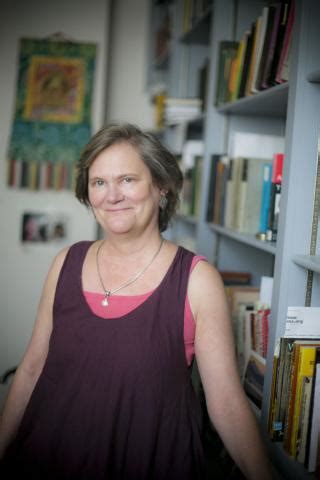A Quote by Wendy Farley
Desire is insatiable not because the goods of the world are too few, too uniform, or too bland. Desire burns through the goods of the world, even though these goods are not false or intrinsically unsatisfactory.... Desire shatters the economy of things; it disputes the tyranny of objects. IT longs for the great emptiness, which is beauty and love without limitation.
Related Quotes
Do not worry! Earthly goods deceive the human heart into believing that they give it security and freedom from worry. But in truth, they are what cause anxiety. The heart which clings to goods receives with them the choking burden of worry. Worry collects treasures, and treasures produce more worries. We desire to secure our lives with earthly goods; we want our worrying to make us worry-free, but the truth is the opposite. The chains which bind us to earthly goods, the clutches which hold the goods tight, are themselves worries.
The absolute desire of 'having more' encourages the selfishness that destroys communal bonds among the children of God. It does so because the idolatry of riches prevents the majority from sharing the goods that the Creator has made for all, and in the all-possessing minority it produces an exaggerated pleasure in these goods.
Three sorts of goods, Aristotle specified, contribute to happiness: goods of the soul, including moral and intellectual virtues and education; bodily goods, such as strength, good health, beauty, and sound senses; and external goods, such as wealth, friends, good birth, good children, good heredity, good reputation and the like.
It is not for man to seek, or even to believe in, God.
He only has to refuse his ultimate love to everything that is not God.
This refusal does not presuppose any belief.
It is enough to recognize what is obvious to any mind:
that all the goods of this world, past, present, and future, real or imaginary,
are finite and limited and radically incapable of satisfying
the desire that perpetually burns within us
for an infinite and perfect good.
What we're talking about is the price of goods, all goods, in terms of money. That has nothing to do with unemployment, except for the fact that you get fewer goods. And when you have more money and fewer goods, the amount of dollars per good goes up. It goes up because there are fewer goods and it goes up because there is more money.
Celebration is not because some desire is fulfilled - because no desire is ever fulfilled. Desire as such cannot be fulfilled. Desire is only a way to avoid the present moment. Desire creates the future and takes you far away. Desire is a drug; it keeps you stoned, it does not allow you to see the reality - that which is herenow.
Without the power of intelligence there is no capacity for spiritual knowledge; and without spiritual knowledge we cannot have the faith from which springs that hope whereby we grasp things of the future as though they were present. Without the power of desire there is no longing, and so no love, which is the issue of longing; for the property of desire is to love something. And without the incensive power, intensifying the desire for union with what is loved, there can be no peace, for peace is truly the complete and undisturbed possession of what is desired.

































